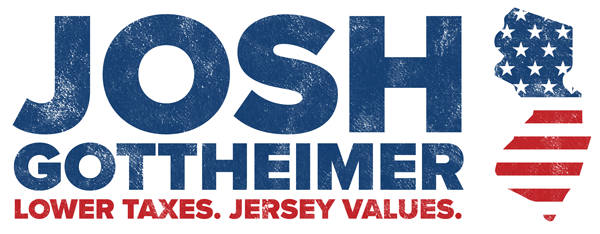November 14, 2017
Bipartisan Group Looks to Split Difference on DACA Fix
A bipartisan bill that would bridge differences between two largely partisan measures to provide young undocumented immigrants with a path to citizenship and beef up border security could soon be forthcoming.
The Problem Solvers Caucus is working on legislation that would provide a compromise between the mostly Democratic-sponsored Dream Act and the GOP-led Recognizing America’s Children (RAC) Act, as well as a bipartisan border security proposal.
Both the Dream Act and RAC Act would provide a legislative solution to replace the Obama-era Deferred Action for Childhood Arrivals program that provides work permits to roughly 800,000 undocumented immigrants brought to the United States as children.
The Trump administration announced in September that it would end DACA, providing a six-month window to give Congress enough time to act.
Problem Solvers member Carlos Curbelo, author of the RAC Act, said the blended bill “is a very, obvious reasonable compromise.”
For example, it would make the age of eligibility 17 for undocumented immigrants to qualify for legal status, splitting the difference between 16 as the RAC Act proposes and 18 as the Dream Act proposes.
The Florida Republican said he discussed the compromise proposal Tuesday during a meeting of the moderate GOP Tuesday Group and centrist New Democrat Coalition.
“Everyone in that room is for a compromise, and I’d say almost everyone in that room is for getting this done, no pride of authorship, however we get it done, let’s do it,” Curbelo said.
Indeed, several members leaving the Tuesday Group/New Democrats meeting expressed optimism about a bipartisan path forward but acknowledged there is still work to do, including convincing party leaders.
“If majority rules, which in theory it does in the House of Representatives, this could get done easily,” New Democrat Coalition Chairman Jim Himes of Connecticut said. “Anything that prevents it from getting done has to do with intense but small opposition and activating outside forces, quickly frankly on both sides.”
That opposition is coming in part from progressive Democrats who are insisting on a clean Dream Act measure and in part from conservative Republicans who don’t believe in providing undocumented immigrants with a path to citizenship or anything resembling amnesty.
But those are the extreme viewpoints and many centrist members, particularly those in the Tuesday Group and New Democrat Coalition, believe there is a compromise to be had on legal status for undocumented immigrants and border security. Himes said both Democrats and Republicans in Tuesday’s meeting appeared “flexible.”
The differences between the Dream Act and the RAC Act “are a matter of degree, not of basic principle, and so of course it’s bridgeable,” the Connecticut Democrat said, describing the degrees as the number of undocumented immigrants who would be covered and various procedures for them to obtain legal status and eventually citizenship.
“It would certainly help if we got a commitment on the part of the leadership to make this happen,” Himes added. “It’s more complicated if they are indifferent or opposed. But this is an imminently solvable problem.”
Democratic leaders have been pushing for the Dream Act as the only solution for the DACA fix, while remaining somewhat open to a border security component in an effort to compromise with Republicans.
But the Dream Act only has a handful of Republican co-sponsors, and it’s clear the GOP is resistant to suddenly supporting a bill they’ve opposed for years.
After meeting with the Tuesday Group, New Democrat Pete Aguilar expressed a willingness to continue conversations with Republicans but said the Dream Act is still the preferred solution as it would help the most young undocumented immigrants.
“The Democratic Caucus is united that the Dream Act is the best vehicle,” the California Democrat said. “It’s the only bipartisan, bicameral bill that exists. It could move fast. And so we’re going to continue to build support for that bill each and every step of the way.”
Curbelo described several obstacles on the bipartisan proposal: “There’s some waiting around. Some Problem Solvers Caucus members don’t want to file the bill yet. The Congressional Hispanic Caucus is applying pressure, saying, ‘Only Dream Act, clean Dream Act.’ And the speaker’s working group I don’t think still has a way forward.”
Although Curbelo described the bill as ready for release, Problem Solvers Co-Chairmen Tom Reed, R-N.Y., and Josh Gottheimer, D-N.J., said there’s still work to do.
“We’ve spent a lot of hours together on this, we’re not there yet,” Gottheimer said, noting they have agreement on some but not all issues.
“If we were just dealing with Carlos, I think [it’d] be a different spot. Some his colleagues on his side are still stuck on a few provisions,” he added, declining to specify those sticking points.
Reed said both parties have contributed to the hold-up, noting there are still disagreements on both the DACA and border security pieces.
“Every time we get very close, both sides tend to get there and all of a sudden they get a little hesitant, Reed said. “But that’s why we’re so close.”
Reed said “hopefully pretty soon” the Problem Solvers Caucus will have an agreement on which they can take an official position. That requires support from at least 51 percent of the caucus’s 24 Democrats and 51 percent of the caucus’s 23 (soon to be 24) Republicans.
Speaker Paul D. Ryan has formed a Republican DACA task force to find a solution that a majority of the GOP conference can support.
Reed said Ryan is aware the Problems Solvers Caucus is working on its own measure, noting he believes it will result in a product that meets the speaker’s specifications.
Curbelo believes that too, but believes both sides are slow-walking a solution, despite the desire by many members to get something done by the end of the year.
“It’s a shame because there’s an overwhelming majority of members who want to get this done,” he said. “And unfortunately there’s a lot of waiting around and watching.”
Rep. Raul Labrador, chairman of the House Judiciary immigration subcommittee, said he doesn’t believe any version of the DREAM Act/RAC Act would get support from a majority of Republicans.
He said about 80 percent of the conference is on the side of more border security, less legalization and ultimately it will be up to leadership to decide what balance to pursue.
The Idaho Republican is a member of Ryan’s task force but he said he could not talk about what the group is doing.

